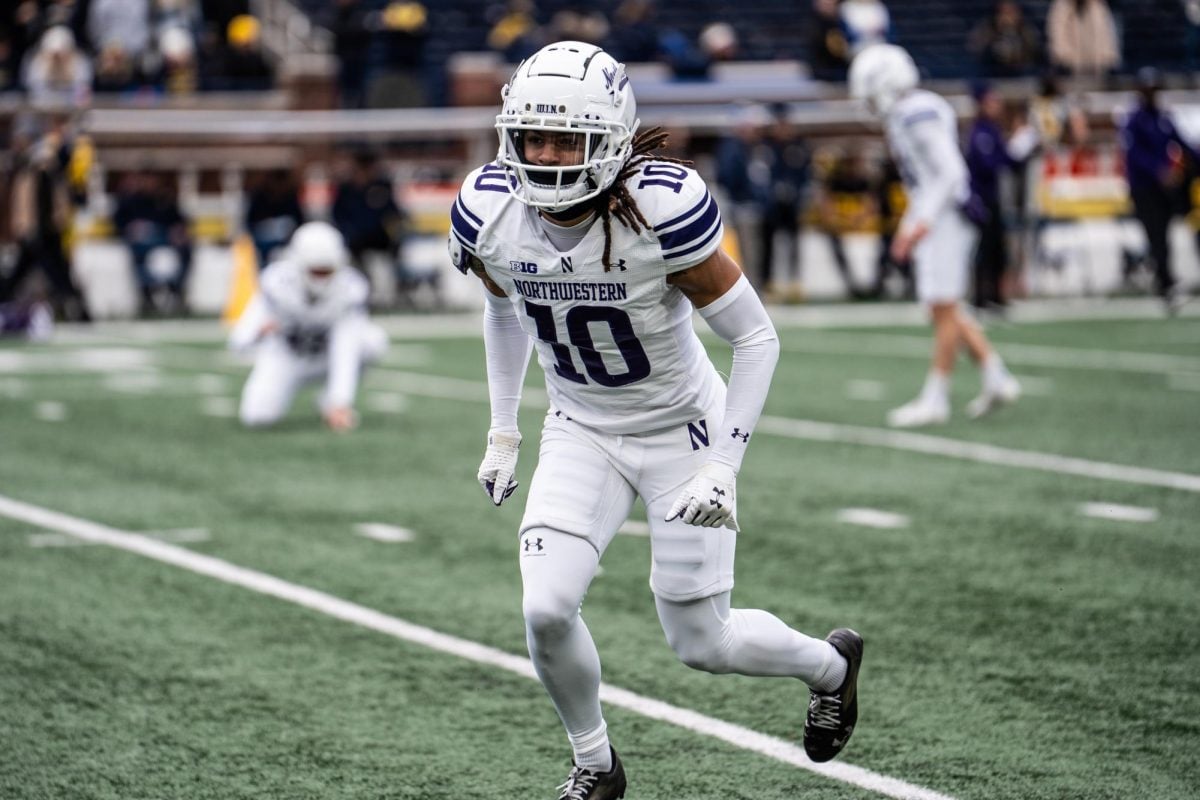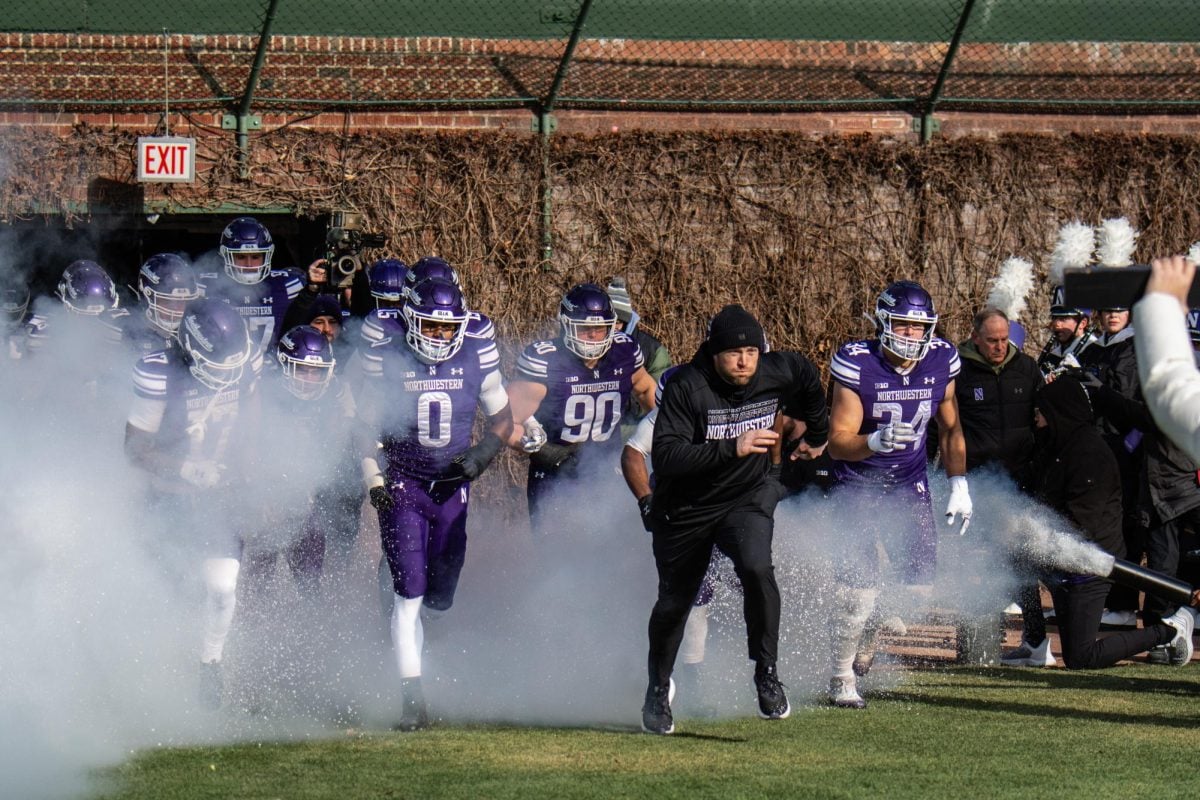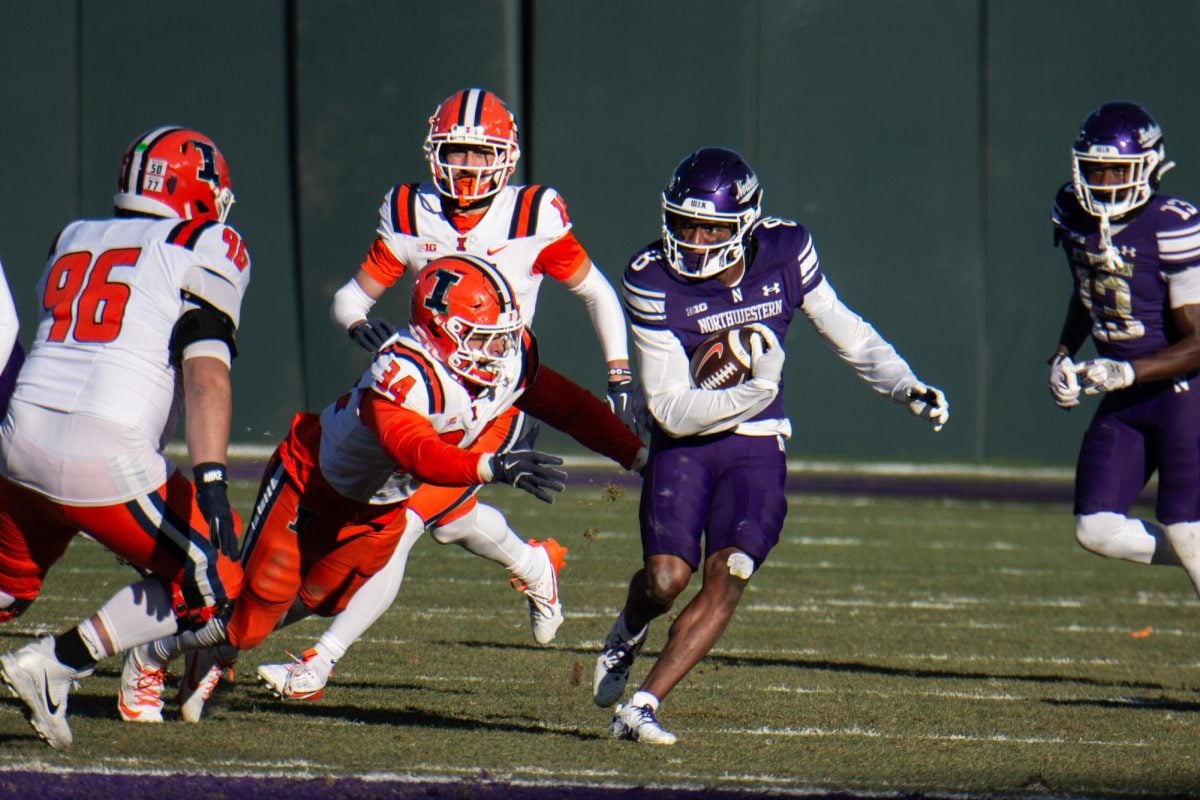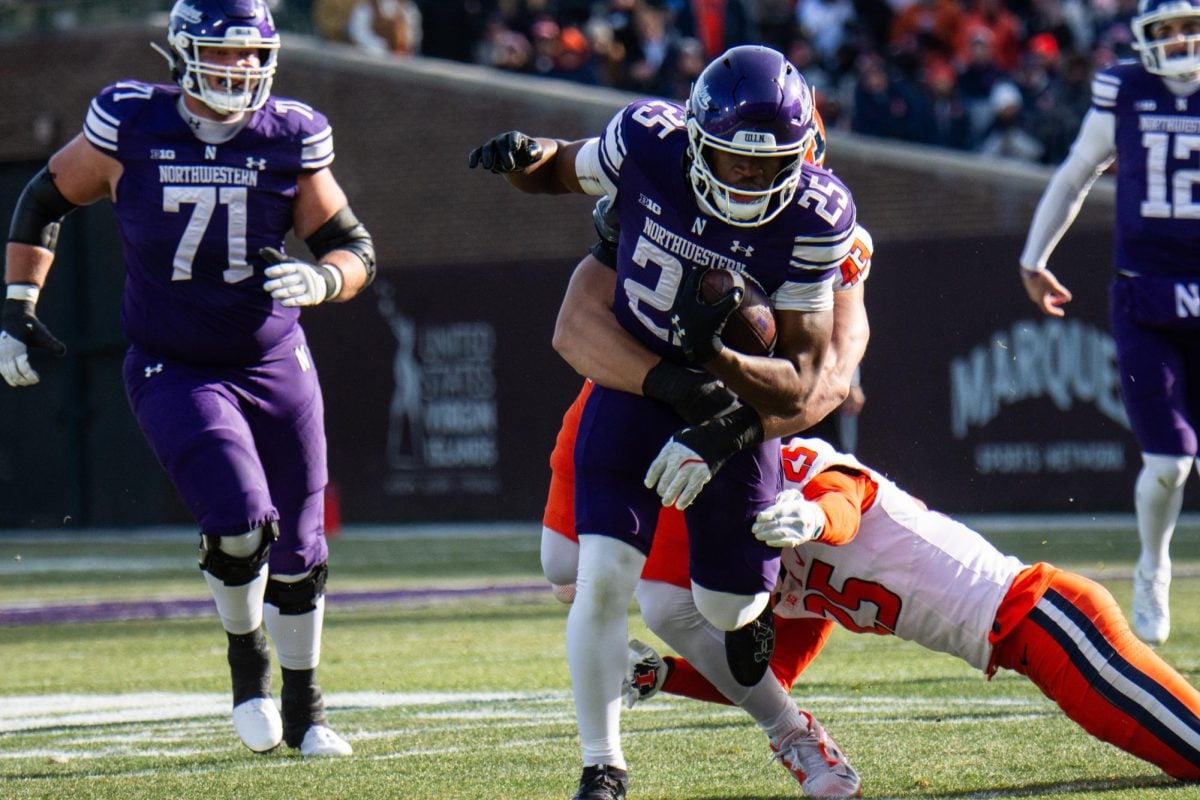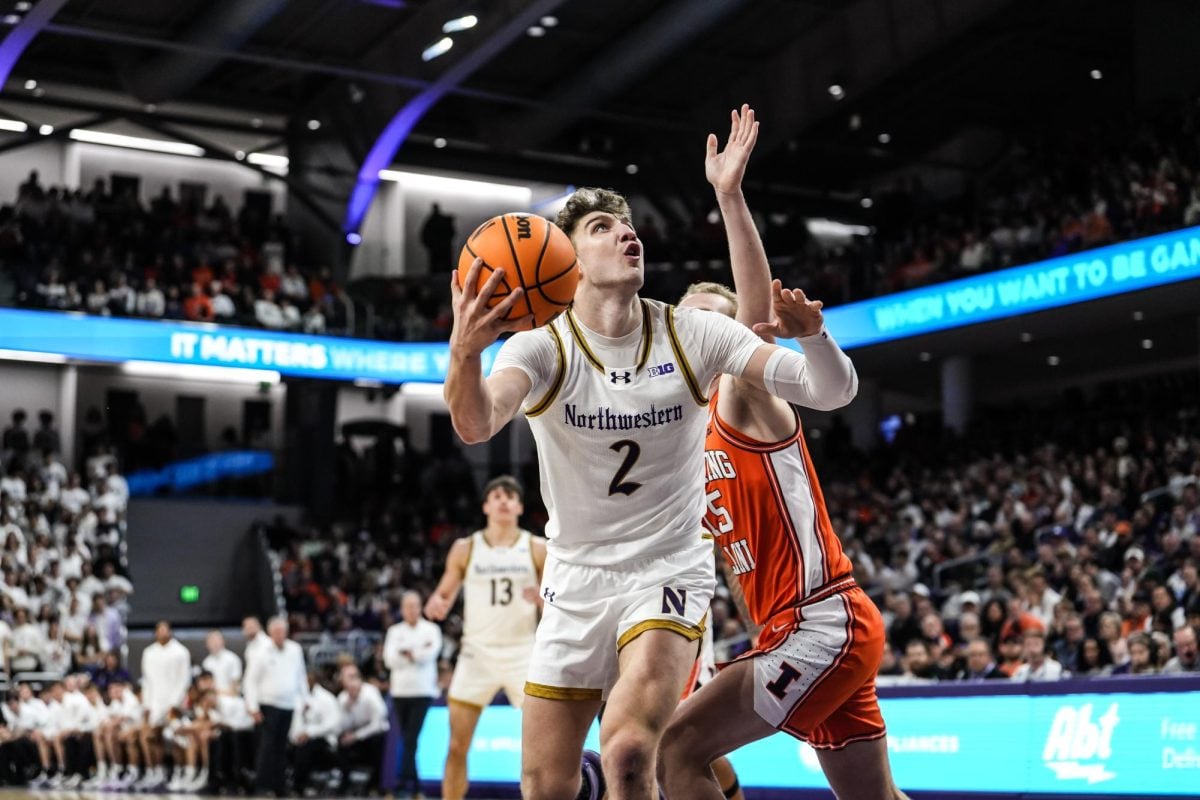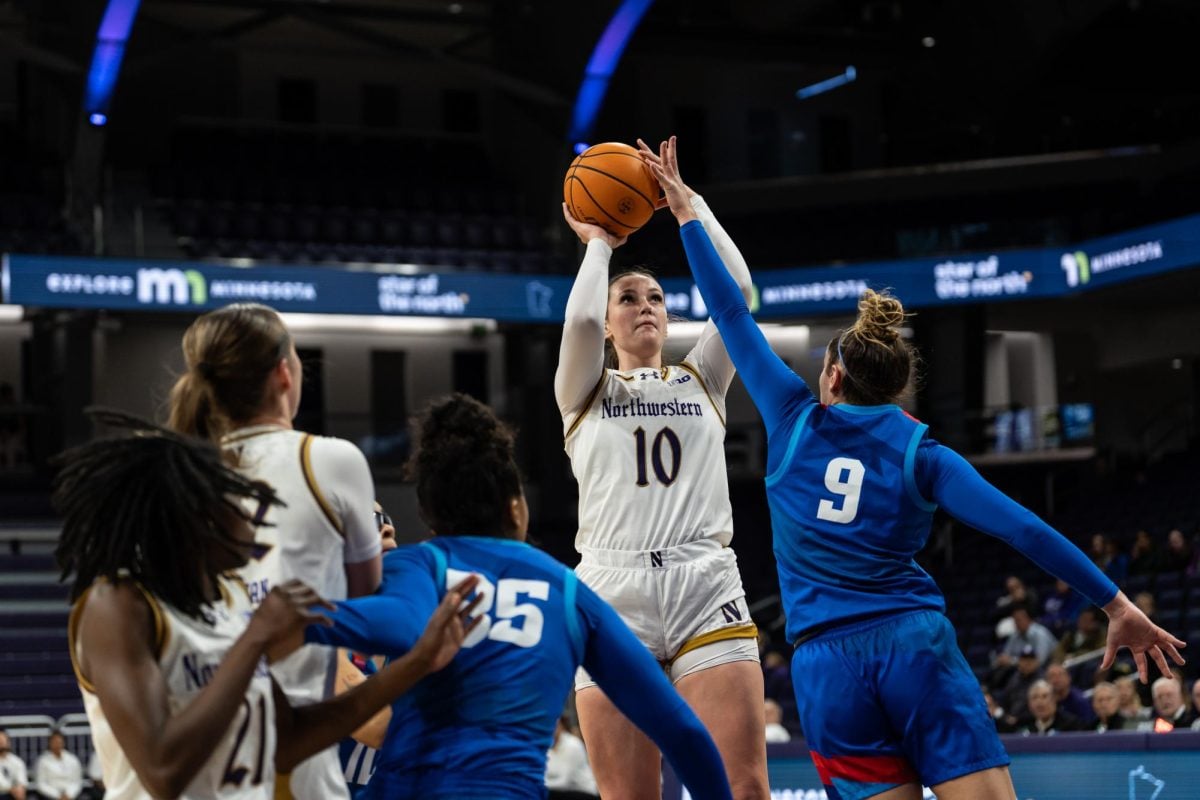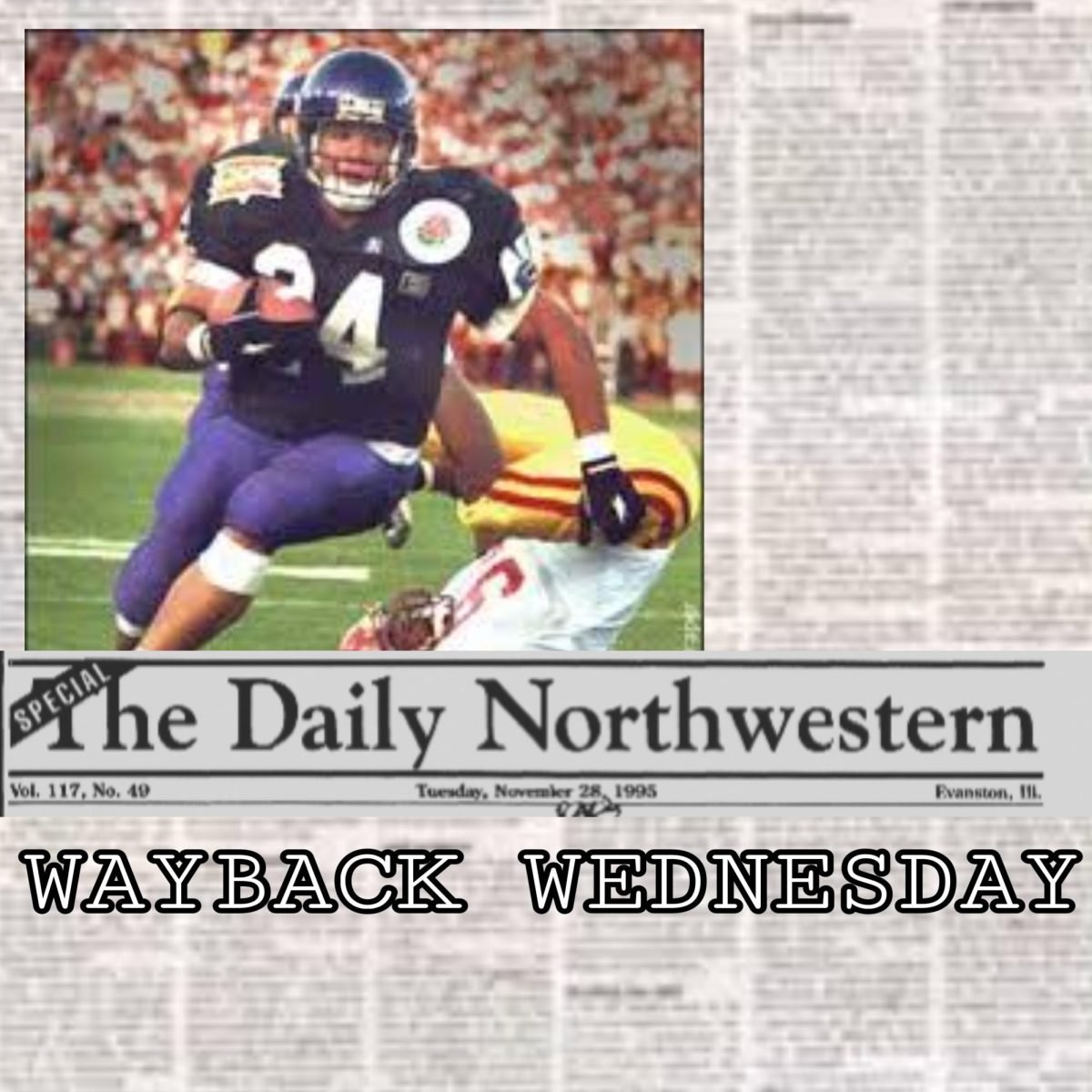Life as a Northwestern defensive lineman is about moving forward.
When defensive coordinator Mike Hankwitz arrived at NU in 2008, he installed a system featuring an attack mentality. Where his predecessor, Greg Colby, preached read-and-react, Hankwitz’s system plays to action, not reaction, as all four down linemen begin to charge as soon as the ball is snapped.
“It’s less thinking,” defensive end Vince Browne said. “It’s just sort of cutting it loose and flying around out there.”
Moving forward has never been more important for Hankwitz’s defense. With the graduation of defensive end Corey Wootton, who will likely be selected in this week’s NFL draft, NU loses a major defensive threat-and one of the last players on scholarship who predated coach Pat Fitzgerald.
Wootton tore his right ACL in the 2008 Alamo Bowl, and he showed lingering effects throughout the 2009 season.
“It was hard not having him be able to play full speed the whole year last year,” Fitzgerald said. “But that’s the hard aspect of college football. Every year, you have a group graduate.”
That group also included Marshall Thomas and Adam Hahn, who combined for every start at one defensive tackle position. This leaves NU with only one senior who figures to contribute in the defensive trenches-Corbin Bryant, who started at the other defensive tackle spot last year.
That’s not to say the front four will lack experience. The injuries that plagued the Cats in 2009 might be a boon in 2010.
“Last year with the injuries we had, we had to play a lot more guys, and a lot more guys got experience,” Hankwitz said. “It’s going to help us in the long run.”
Wootton’s injury opened the door for junior Kevin Watt to make two starts, and injuries to Hahn and Thomas led to Niko Mafuli and Jack DiNardo taking snaps alongside Bryant.
“There’s not many people returning, but a lot of the guys did get some snaps,” Browne said. “Not as many returning starters, no, but we’ve definitely got some guys who can play.”
The injuries and inexperience certainly didn’t help NU at the time. In 2008, Hankwitz’s first year on the job, it appeared his new scheme had completely changed NU’s defensive reputation. In one year, NU went from second-to-last in the conference in scoring defense, allowing 31 points a game, to fourth, allowing 20.2. And up front, the Cats went from 10th place to leading the conference with 34 sacks.
But the depleted unit was back to normal in 2009, finishing tied for sixth in the conference in sacks. The front line put together some dismal performances. In week two NU allowed 183 yards rushing to a lowly Eastern Michigan squad, including 127 for running back Dwayne Priest, who averaged 7.5 yards per carry in the game. The Cats allowed an opposing running back to gain 100 yards on the ground six times.
But as the season wore on, the Cats had outings when everything clicked. Against Miami (OH), NU recorded eight sacks. Against Iowa, the Cats held the Hawkeyes to 65 yards rushing and allowed no carries for more than 11 yards. Wootton also recorded a game-changing sack of Ricky Stanzi that ended with a fumble recovery in the end zone.
The key to NU’s on-again, off-again success with Hankwitz’s schemes is the personnel. In 2008 a defensive front line featuring two future NFL players in Wooton and John Gill as well as Kevin Mims saw great success. In 2009 a team with a half-injured Wootton and a makeshift rotation at defensive tackle looked shoddy at first, but came together as wounds began to heal.
Which type of unit will NU have in 2010?
“You’ve got guys stepping up,” Mafuli said. “Jack, Vince, Watt, Quentin Williams, me-I don’t think it’s going to be that big of a deal.”
Hankwitz sees this personnel setas one uniquely fitted for his attacking mentality.
“It’s part of our philosophy,” Hankwitz said. “Because we don’t have all 310 pound tackles.
Our ends aren’t 275 like LSU’s. We need to be more aggressive to control the line of scrimmage.”
His line has adapted to the mindset required for a unit that always has to be on the attack.
“It suits us really well,” Mafuli said. “It was kind of strange at first. Not knowing where to go, just go. But once you start just attacking, it becomes second nature. You just do it, and everything just kind of goes.”
When the pieces are in place, NU’s aggression has paid off.
“The proof is in the empirical data,” Fitzgerald said. “We’ve played better defense here in the last few years.”
And so the onus for NU’s success lies on its own forward-focused aggression.
“We want to attack,” Fitzgerald said. “We want to put pressure on the offense. And we want to dictate some things.”

